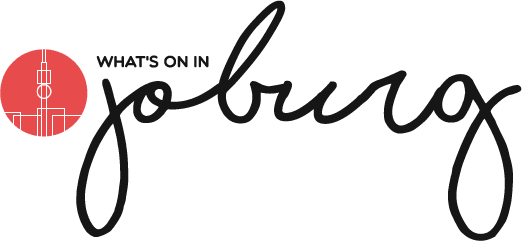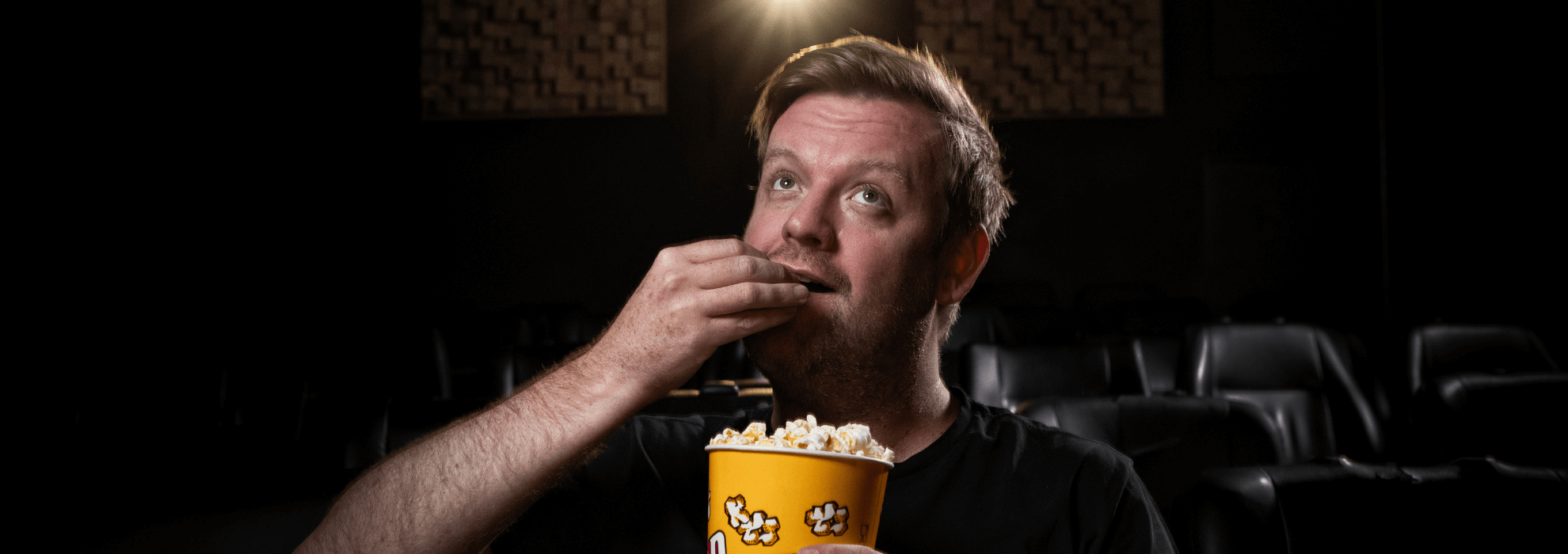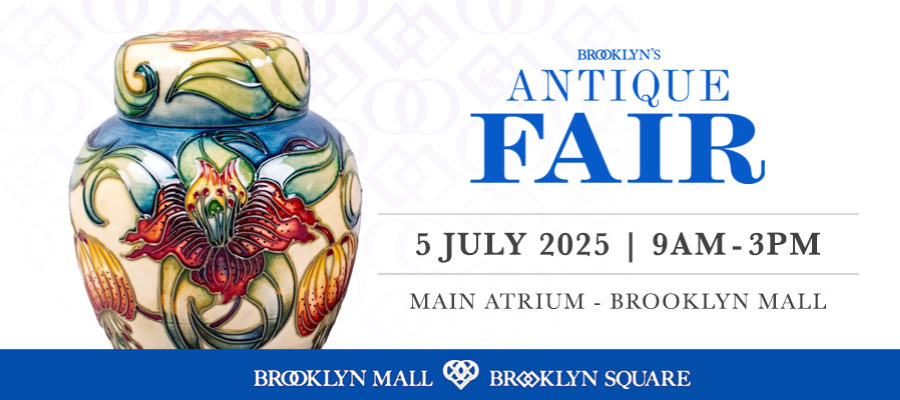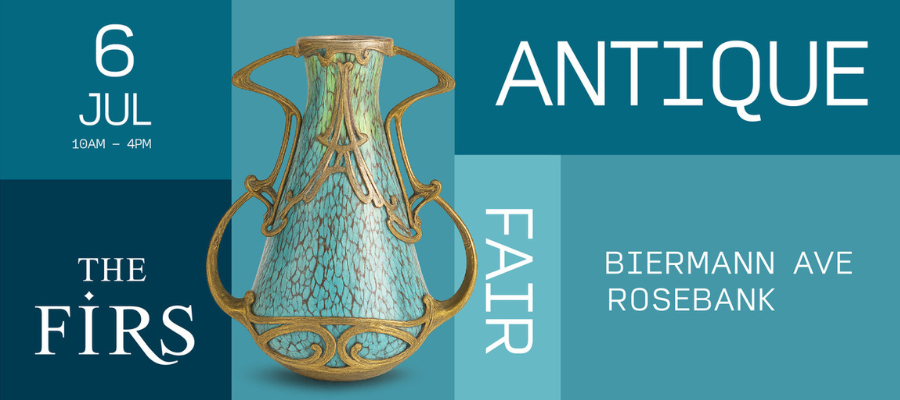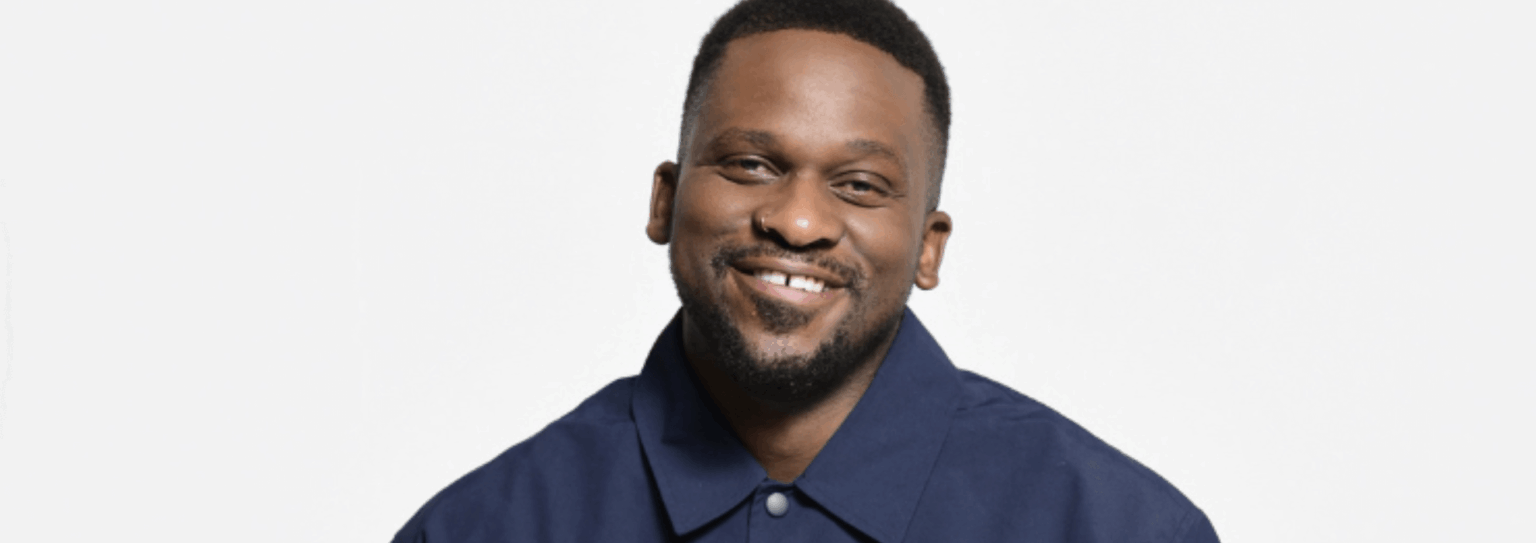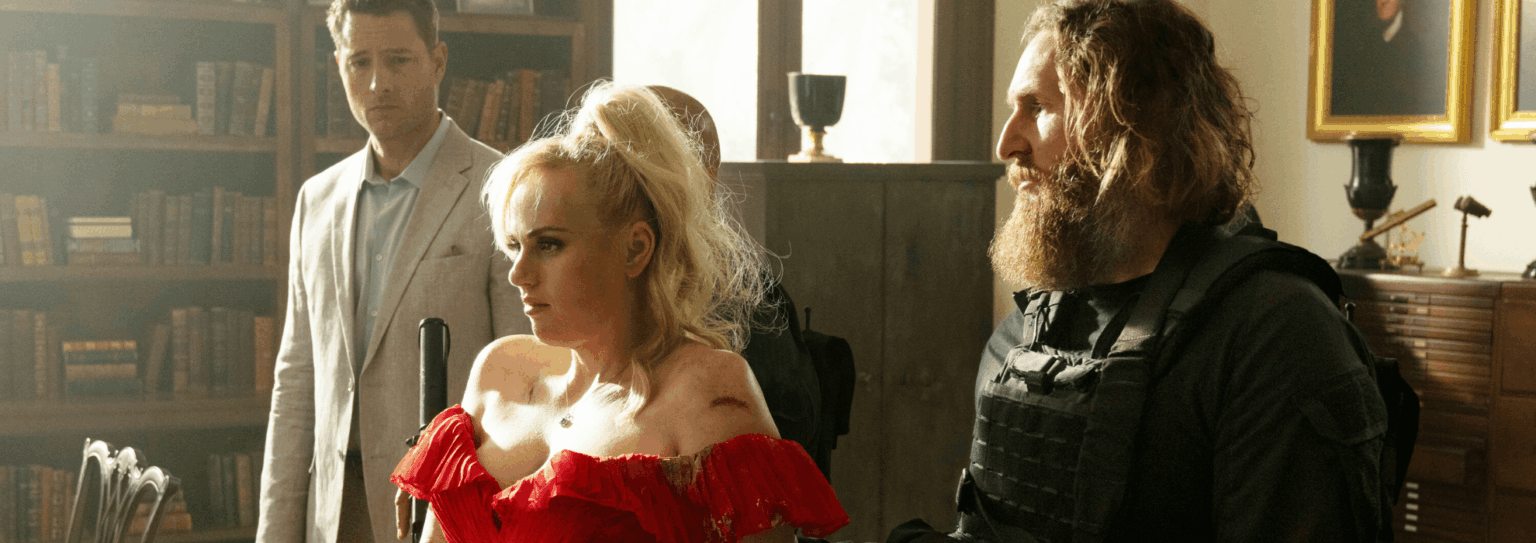The biggest conversation in the film industry both locally and abroad is the downturn of commercial cinema attendance. That is not the case for The Bioscope, who celebrate their 15th anniversary in Joburg this June 2025. What started as a grungey movie theatre in Maboneng has evolved into one of the city’s most important attractions and a wonderful space where considered art-house films are screened daily.
We spoke with co-founder Russell Grant about The Bioscope’s formative years, incredible milestones, their geeky podcast, and the state of South African cinema.
Take us back to the beginning of The Bioscope. What was the concept and mission?
RusselI Grant: I had a deep passion for Johannesburg, for exploring and being a part of helping uplift, specifically the downtown Johannesburg. That’s why I was interested in Maboneng. It was a very exciting time. My business partner at the time, Darryl Els, approached it more from an academic perspective. He wrote his thesis on whether or not there was space for something like an independent cinema to be started in Johannesburg. And I thought that’s such a beautiful thing to give to Johannesburg, because it’s not like we were this little city, this little sleepy little town that needed some entertainment. We were a major city that didn’t have something like this. And so if we were the people that pulled this off, it could be incredible.
There was this exciting thing in the water around the 2010s. I don’t think there’s a term for it, but I’ve called it the artisanal revolution when craft beer and the artisanal market showed up in South Africa. People were looking for something unique, niche, different, handmade, artisanal, but also very well made. But it’s also something very specific. So I think we were well-timed that something like an independent cinema could exist in Johannesburg, and it was exciting that it got to be us.
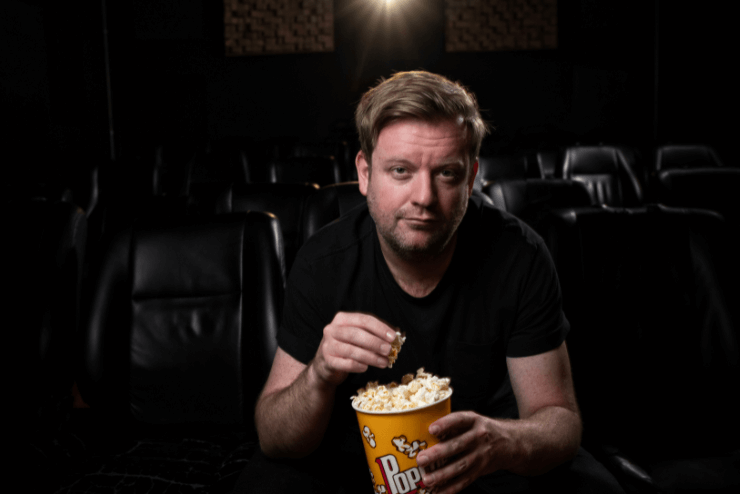
How do you remember the early years of The Bioscope in Maboneng?
RusselI Grant: We were downtown in the right place at the right time with all the attention that Maboneng was getting to give people this unique Joburg lifestyle. People who always wanted to be in the city, but not centred. The part of Joburg that was actually quite quiet by 3/4pm when all the corporates left. But downtown Joburg was also abandoned, a ghost town. So, The Bioscope was giving some life to that.
We wanted to give South African cinema the attention it deserved. And back then, Marvel hadn’t existed yet, but a new blockbuster would come in, literally last a week and be gone. We wanted to treat South African films like our blockbusters and give them more time. Especially for something like documentaries, which have an audience for people who are desperate to learn and appreciate these films from around the world.
Did you find running the cinema easy back then?
RusselI Grant: The big challenge was the fact that we had to invest. We had to make this work. We can all do pop-up film nights, and that’s what had really existed in our world up until that point. But to have it be day in and day out needed a certain kind of attention and focus, and approach. Thankfully, we were suited for it.
Now, 15 years later, you learn when you’ve got to focus, when you’ve got to save your energy, and when you’ve got to move on. It’s literally like running a marathon as opposed to a sprint. You’ve got to train differently, store your energy. Know when to push and know when to hold back so that you can last. And yeah, here we are 15 years later, it’s amazing.
What prompted the move from your Maboneng venue to 44 Stanley?
RusselI Grant: We made the call at the end of 2019. 44 Stanley is far more suited for cinema. It’s this beautiful little fountain and quite a unique shopping centre. It doesn’t even feel like a shopping centre, but it effectively is. That’s the right spot for us.
We don’t wish any ill on Maboneng and only want to speak well about it. And hopefully, as a neighbourhood, it continues to be okay and look after itself. We had to reset our priorities, and we were looking after ourselves and our own safety, literally and figuratively, risking it by going into downtown. And I think a lot of people just lost the enthusiasm to do it.
Also, a lot of what made Maboneng very appealing to people who lived outside of it was that there were quite a few unique spaces, like the Sunday market. Then those markets started existing in other parts of the city, and you no longer needed a trip into Maboneng for it. They were doing it on an even bigger scale, or perhaps even better. My little knowledge of Maboneng is that it became more of a local neighbourhood for the people who live there.
What Joburg ultimately needs is good management of its wards. We need basic infrastructure of trees, poles and potholes. That’s a really good place to start. I can’t speak to how you solve downtown. But Jozi My Jozi then came in post-COVID to say, “hold on, guys, we’ve still got this incredible stuff here.” I know one of the big things that they did was just the basics. They fixed the light bulbs on the Mandela Bridge. There’s this incredible architectural bridge designed by a world-famous person, and then slowly but surely, each light bulb went out. I know it cost Jozi My Jozi a lot of money to fix that. So we need all the Jozi My Jozis we can to help look after downtown.
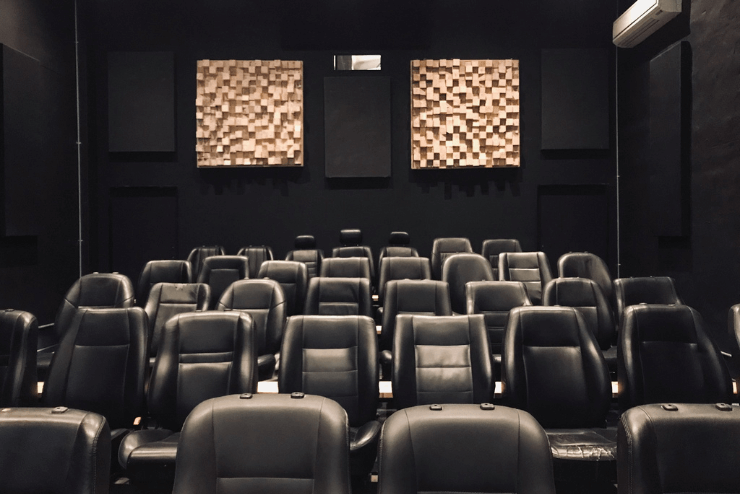
Have you always had a clear idea of what sort of films you’d like to screen?
RusselI Grant: To some degree, and still to this day, we challenge it. At the beginning of last year, we upgraded our system so that we could do bigger studio releases, not necessarily mainstream. And basically, what it did was it opened up far more films for us to screen. Now we can get anything. Then the question becomes even harder: what is a Bioscope film? I’ve realised that I kind of know, to some degree, what it’s not. What it can be is still up for testing, but sometimes you just know what it’s not.
I think a Bioscope audience, for the most part, is a smart audience. It’s a learned audience. It’s an audience that wants to be challenged. It’s an audience that wants to learn. That’s why documentaries have always done well, because we have an audience that will come on a Friday night and learn about space and the universe. We’ve had a talk that’s been very successful over the last few years called The Universe on Stage, which is this live performance of visuals and basically this kind of TED talk about the universe of Black Holes, accompanied by a beautiful cinematic live performance. That sold out on a Friday night. There are also documentaries from the Encounters Film Festival. But we also do fun dress-up events, sing-alongs, and quote-alongs. So we’re very geeky in that sense. With the new Superman coming, I want us to revisit the original.
The car chair seating is something really cool, pretty much your identity at this point. What’s the story behind that?
RusselI Grant: Our chairs are delightful and unique, for the most part comfortable. They’re car seats that we have turned into cinema seats. And that’s part of the charm, that it’s something different. I don’t know of any cinemas that reuse car seats. It’s quite a Joburg thing, especially with Maboneng, where we operated from a building that used to be a panel beaters. It was a very industrial neighbourhood, which kind of informed that. We didn’t want to look like other cinemas. We don’t want to be plush and prestige. That’s not the agenda, because why would you come to The Bioscope?
Some of those seats may need a little fix, and we’re busy working on them now this year. We’ve been able to keep crafting what that experience feels like, whether it’s a soundtrack that plays as you walk in, or the right pizza or the right cocktail.
Tell us how The Video Store podcast series came together
RusselI Grant: I always wanted to do a podcast! When Netflix was taking hold, and I think Disney Plus had just arrived, we realised that there was this whole exciting world of streaming now upon us, where there was just so much to enjoy. And this large audience that’s sitting at home and watching TV. How do we reach them as well?
Perhaps people need help because that’s what those people at a video store did. They were the human algorithm who’d say, “if you like this, then you’d love this.”
So the thought was to have this channel that can hit both cinema and home viewers, and just talk about what we’re loving, a little bit like The Bioscope 15 years ago. Nothing like this really existed in the podcast space. The sort of unashamedly film and geeky podcast made for South Africans that didn’t just speak about movies.
The Video Store has also been a great way to tell the story of The Bioscope through the friends, filmmakers, comedians and people close to us who come in for a visit. At one point, we started reaching for famous people that I’d never met.
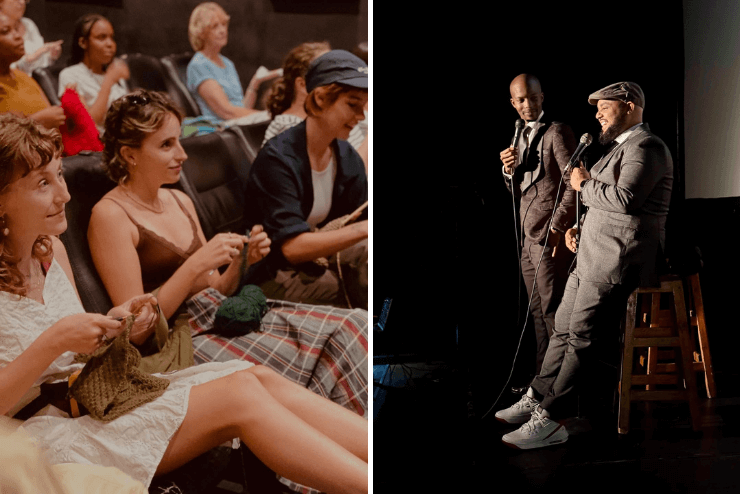
What makes you most proud when you think of The Bioscope’s 15-year run?
RusselI Grant: I think the first and foremost thing I’m most proud of is that this last financial year was our best. One could literally tell yourself that you’re only getting better.
I’m proud of the fact that we moved when we did, and that we found this home here at 44 Stanley, which is very much the right home for us. I’m proud of the fact that I’ve kept pretty much the exact same staff. There were a handful of folks who came through in the beginning when we were finding our feet, but once we hit a rhythm, we’ve kept the same staff. People who have been with us since 2013, well over 10 years. They’re family to me.
There seems to be a strong interest in South African filmmaking. What is your take on the local film industry and the focus on boosting production in South Africa?
RusselI Grant: What I can say is that pre-COVID, there were a handful of South African films that were at least trying to have a cinema release. I don’t know where they were ending up thereafter. And that was perhaps the scary part back then: what happened to a film after a cinema release? But now, I think more films than before are being made. I’m happy for the filmmakers and the film industry that there are more people commissioning, namely, the streamers. More people will see your film if it’s on Showmax than if it gets a cinema release. There’s no question.
The Bioscope is small enough that we can still benefit from this because a lot of those films can still get a nice premiere. We’ll do at least one screening of South African films before they go to streaming. But there aren’t as many films getting a cinema release, which is a pity for places like me. I’m not too fussed about that because I just am grateful that I can see my friends doing more work and getting these chances and getting their films out there and having them find an audience.
What sets South African cinema apart from the rest, and how can we nurture that?
South African audiences are smart. Don’t forget that they are exposed to everything else you know, and the quality of television around the world is just incredible. I think it really comes down to the writing. You can really get away with not having the best quality cameras and lighting and all that if your writing is solid.
I think South Africa should invest in that because at the end of the day, it’s really what cuts through, whether it’s a documentary or a narrative TV show or a film. When there’s a beautiful, genuine, well-written, smart product, it does well. It shines through. People go out to see it.
A lot of our film writers just need practice. I know a few of them got a lot of experience from dealing with these bigger streamers like Netflix that just force them to rewrite and do another draft, and another draft, and ultimately make their products better.
How to book tickets to the cinema
See their full list of upcoming film screenings and events here.
When: Daily, from 10am
Where: 44 Stanley, 44 Stanley Ave, Braamfontein Werf, Johannesburg
Website: thebioscope.co.za
Email: [email protected]
Tel: 061 900 4457
